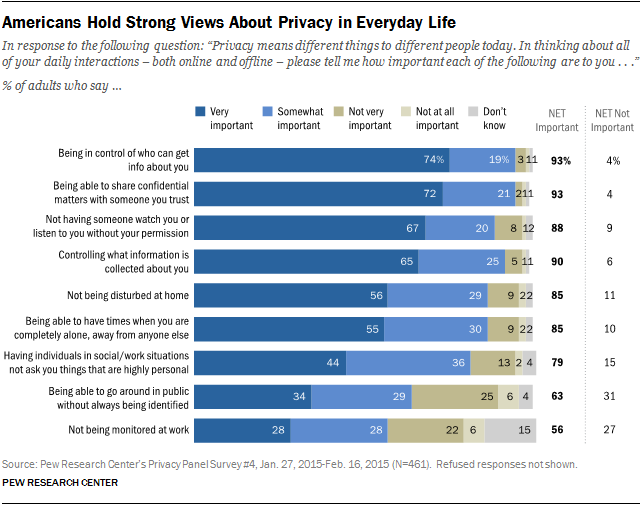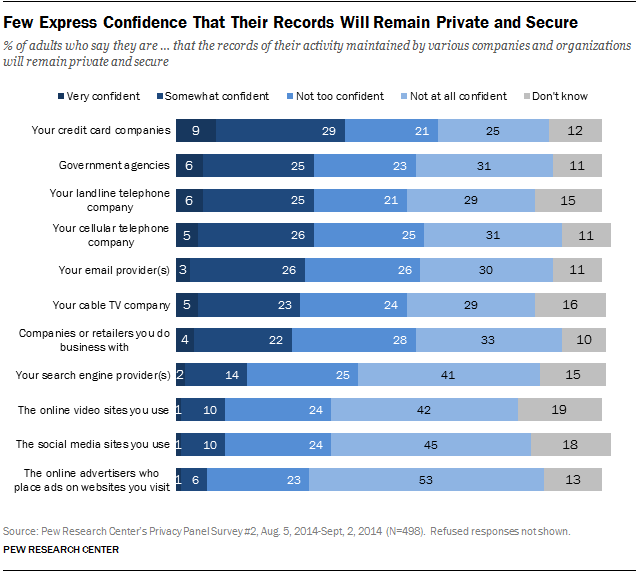Americans want privacy as much as ever — but in the digital age, most think it’s a lost cause. That, at least, is the depressing takeaway from a new Pew report, which shows that the faith of US citizens in digital service providers (and themselves) to protect their data is abysmally low.
The report summarises the results of two surveys of US adults age 18-50+, conducted in late 2014 and early 2015. While more than nine in 10 adults said controlling who gains access to their private information is important, over 60 per cent of survey respondents felt they had little control over the records maintained by social media sites, search engine providers and online video sites. Also, that the US government is basically watching them all the time:
Americans feel privacy is important in their daily lives in a number of essential ways. Yet, they have a pervasive sense that they are under surveillance when in public and very few feel they have a great deal of control over the data that is collected about them and how it is used.

Other, rather unsurprising revelations from the new report: Most (67 per cent) don’t want to be watched or listened to without our permission, a majority (56 per cent) don’t want to be disturbed at home and virtually no one believes landline telephones are secure anymore (good: they aren’t). What is a little surprising is that only 34 per cent of survey respondents said being able to go unnoticed in public “very important” — though perhaps responses would have been a little different had the survey specifically asked our feelings on facial recognition software.

So, now that it’s clear Americans are generally concerned about their privacy, should we assume that most of them are working hard to protect their digital selves? NOPE.
Although some respondents reported having taken basic steps to protect their privacy, such as clearing cookies or lying about personal information on websites, few Americans surveyed had taken any more serious measures. Only 10 per cent of adults polled say they have encrypted their phone calls, text messages or emails, while another nine per cent have used a proxy server, Tor server, or VPN to browse the web anonymously. The reason for our lack of initiative may have to do with another pervasive belief: that if the NSA or a motivated individual wanted to ferret out our private information, they could.
All that said, there is a small glimmer of hope. Most are at least aware of government surveillance, and a small number of folks are making an effort to improve their personal data security in light of that knowledge. If you’d like to do more to protect your digital information but aren’t sure where to start, no better place than Giz’s explainer on how to encrypt everything.
Top image: Shutterstock
